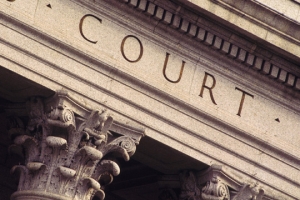In March 2022, as noted in a press release, “[t]he American Civil Liberties Union, ACLU of South Carolina, and the NAACP filed a lawsuit…on behalf of the South Carolina NAACP. The case challenges South Carolina Court Administration’s categorical ban on automated data collection – known as “scraping” – on the Public Index, arguing that the ban is an unreasonable restriction on SC NAACP’s right to access and record public court records under the First Amendment.” The state NAACP wants to “timely identify tenants in need of services before they are removed from their homes” in the current “eviction crisis.” The press release notes that
Scraping is a legitimate method of collecting information online that is often necessary to efficiently and systematically gather records that might not otherwise be possible to record. The lawsuit asserts that the South Carolina Court Administration is violating the First Amendment by prohibiting scraping of its court docket information, which is already publicly available online.
The South Carolina NAACP seeks to scrape information from the Public Index, the county-by-county repository of legal filings in the state of South Carolina, in order to identify tenants in need of support to fight eviction cases and conduct systematic research into patterns of eviction filings, including potential Fair Housing Act violations. However, South Carolina’s Public Index employs terms of service and technical limitations that categorically prohibit scraping. Attorneys practicing in South Carolina can be subject to disciplinary action for violating the Public Index’s terms of service.
A Law 360 article says that “South Carolina’s Public Index is a collection of publicly available websites that provide information about all state court cases, according to the complaint, and is the only reliable and effective way to access up-to-date information about newly filed eviction cases.”
The case has broader implications, according to Allen Chaney, the legal director for the ACLU of South Carolina and Esha Bhandari, deputy project director of the ACLU Speech, Privacy, and Technology Project. Chaney said, “[f]or the public to have a meaningful discussion about the role our courts play in matters of public concern, the right to use noninvasive technical means to capture public court information must be protected. This case is about ensuring core First Amendment principles, like the right to access public court filings, are applied in a way that meets our rapidly expanding digital reality.” Bhandari said that “[t]he First Amendment protects the NAACP’s right to use digital-era methods of recording public docket information that is available to any internet user. Scraping is often a necessary method of gathering public data efficiently, permitting systemic research to hold powerful actors accountable.”
The complaint “lawsuit argues that the prohibition on scraping the Public Index violates the First Amendment, including because it restricts the right to record public information and the right of access to judicial records. The lawsuit builds on the arguments made in a previous ACLU case, Sandvig v. Barr, that successfully challenged an application of the Computer Fraud and Abuse Act that would have prohibited online research techniques such as scraping. It also builds on the ACLU’s work supporting the use of eviction records to expose the racial and gendered impact of evictions across the country and challenge discriminatory housing practices.”
The case is South Carolina State Conf. of the NAACP v. Kohn, U.S. Dist. Ct., (D. S.C., Columbia Div.), No. 3:22-cv-01007.
